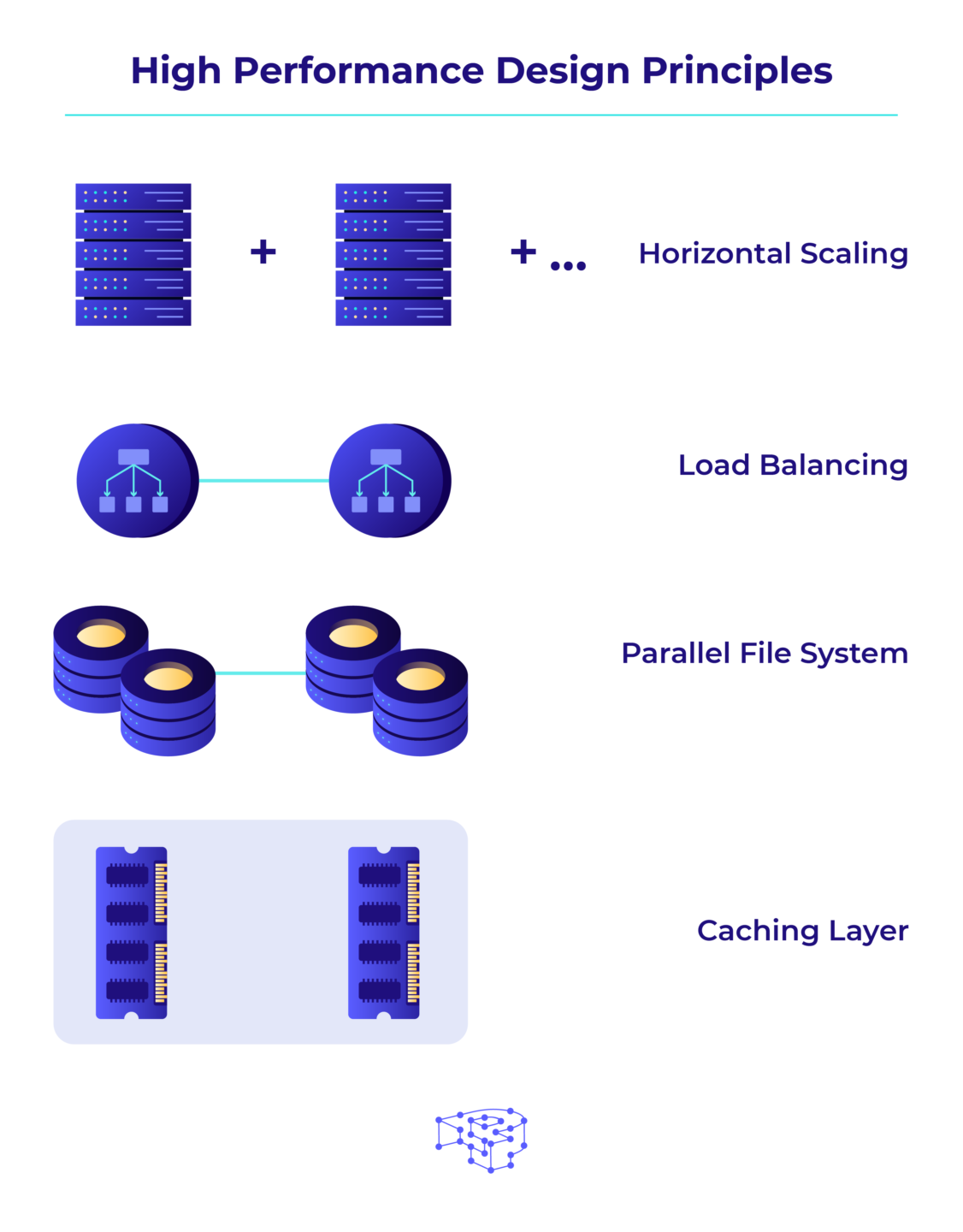
In our previous articles, we have discussed the two pillars of Enterprise Architecture, High Availability and Security, and how these hosting solutions impact your business. In this article, we will talk about the third pillar, which is the High Performance of our hosting that powers our customers’ WordPress sites. It is always a favorite topic of everyone, but it is also the cause of many misunderstandings.
High-performance WordPress hosting refers to a hosting environment with specialized architecture that ensures an optimal user experience. Such services deploy optimized server configurations, advanced infrastructure, and the right technologies to ensure that WordPress websites load quickly and operate seamlessly.
📝 Before exploring the provider architecture, ensure your performance basics are done right. Download the free Test & Measure WordPress Speed cheatsheet + Quick Wins checklist (PDF). Benchmark your site on real traffic. Find bottlenecks fast. Apply front-end fixes that lift Core Web Vitals.
The 4 Key Design Principles of High-Performance Architectures
Enterprise architectures implement four key designs that contribute to serious performance gains. Let’s review them one by one:

Horizontal Scaling
Plain speaking, Horizontal Scaling is the ability to add more servers to a cluster, thus decreasing the response times in periods of heavy load, and being also able to handle more traffic. There is no theoretical limit to the number of servers you may add in contrast to vertical scaling; adding more memory and CPU power to every server has a hard limit.
Caching
Caching is a mechanism with which you save the most frequently used or accessed data usually in memory. There are also certain caching methods that use the disk. The idea is to store the data in some medium that offers you a throughput advantage. By doing so you gain advantages in speed. Implementing caching in every tier is possible, in accordance with its function.
In Pressidium, we utilize a server-side adaptive caching mechanism that you can fine-tune per website and enjoy a stress-free improved performance.
Load Balancing
These are servers that are on the frontlines, so to speak, that are responsible for receiving the incoming requests of web visitors, and then forwarding them to web servers to distribute the load.
That means being able to handle more concurrent requests from visitors. And if your needs are highly demanding, you can always scale horizontally, by adding extra nodes to the cluster.
Load balancing prevents overwhelming the resources with too much traffic, ensuring that the system remains available, reliable, and responsive to user requests.
Parallel File System
This design enables all nodes in a cluster to have a shared file system. All of our servers use high-availability SSD-based storage that implements a fast parallel file system using a mix of synchronous and asynchronous replication.
That way, you get both the resiliency of a highly available clustered file system and local SSD speeds for read operations. It is also faster than conventional Network-attached storage (NAS) with a network file system (NFS) protocol.
📝 Know what to expect from your server. Do provider research right. Download our free Server-Side Performance Optimization cheatsheet and How to Choose Provider checklist (PDF).
Try our Award-Winning WordPress Hosting today!

Our High-Performance WordPress Platform
We built on the previous “keystone” designs and expanded them with our expertise. We sincerely believe that our design is an excellent yardstick when searching for high-performance WordPress hosting solutions.
Dynamic Load Balancing
That ensures intelligently dispatching each request to the least busy server. So, if the traffic on your site peaks, our system will evenly distribute the load across our server farms, eliminating the pitfalls and accelerating the delivery.
Each node in a system operates independently and has its own dedicated resources, such as processors, memory, and storage. In this architecture, there is no shared memory or shared disk among the nodes.
Our Pressidium Platform Load Balancers are not only highly available, using the same cluster design that we use everywhere, but they are also dynamic. This means that they are smart about where to send each visitor request, depending on the current node load. For example, if node A is busy or seems overworked, then the request automatically gets routed to node B.
High-Available SSD Storage
Our parallel file system implementation uses SSD-based storage that enables access to files from multiple nodes. This is designed according to the “shared-nothing” topology, offering profound speed gains in comparison to conventional network-attached file systems.
In the “shared-nothing” topology, the nodes do not share memory or disk.
They operate independently with dedicated resources (processors, memory, and storage)
In a NAS configuration, you may experience bottlenecks since there is one server that shares the file system with everyone. In a “shared-nothing” topology, there is no single commonly shared component, the data is replicated to all nodes.
Multilayer Adaptive Caching Engine
We’ve taken Varnish as our building block and built a unique two-layer adaptive caching engine: There is a “hot” cache layer that stores all frequently accessed data in RAM and a “warm” one that stores the less frequently used data on SSD disks. Taking it a step further, we implemented our own adaptive mechanism that profiles your website’s traffic and applies the most efficient caching rules.
HTTP/3 Powered CDN
Our Content Delivery Network consists of local edge nodes at 22 strategic locations spread across the entire globe. This ensures retrieving assets from the closest server every time based on your location.
PHP OPCache
OPCache (Opcode Cache) in PHP is a caching engine that improves the performance of PHP scripts. This is accomplished by pre-compiling PHP code into an intermediary form, called bytecode.
Caching, at that level, stores these bytecode data in memory, without the need for PHP to load and parse the script every time it is requested. Consequently, your application will be executed faster.
SSL Acceleration
Instead of taxing your busy servers with the constant and burdensome encryption/decryption SSL handshakes, we offload the process to separate and dedicated servers. As a result, you gain the benefits from SSL and mitigate the performance penalties.
Global Data Center Location Choices
By choosing the data center that is closer to your preferred geographical region, your website experiences fewer network delays while having snappier response times.
Automatic Image Optimization
All images that are uploaded to our Platform automatically go through a lossless compression and optimization process. This leads to faster loading times.
Also, if you’re serious about maximizing your site’s efficiency, conducting a performance audit is a wise practice. This helps identify areas for improvement on both the server and client sides. Take advantage of our Free Performance Audit to pinpoint and resolve performance bottlenecks. Click the banner below to get started and elevate your site’s performance today!

Selecting the right hosting provider is a pivotal decision for your website’s success. To further explore hosting options and performance strategies, consider the following resources:
See Also
- 10 Reasons Why Managed WordPress Hosting is the Best for Your Small Business
- WordPress Hosting for Freelancers
- Shared Hosting vs. VPS Hosting vs. Managed WordPress Hosting
- WordPress Hosting – Sorting the Good from the Bad
Want a deeper look at what actually drives WordPress performance, beyond sales claims and feature lists?
Our Performance Optimization Guide breaks down the real technical factors that impact speed and stability. It’s free, online, and no email is needed.
Try Hosting Built for Speed and Growth
Choosing the right hosting partner is key to unlocking true WordPress performance. Whether you’re preparing for traffic spikes or simply want a faster, more reliable experience for your users, your infrastructure matters.
Experience the difference with our award-winning WordPress hosting, engineered for peak performance, scalability, and peace of mind.
Start Your 14 Day Free Trial
Try our award winning WordPress Hosting!


















